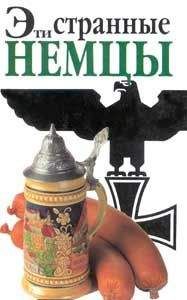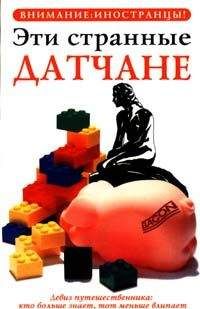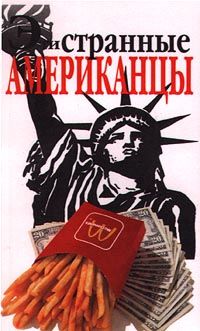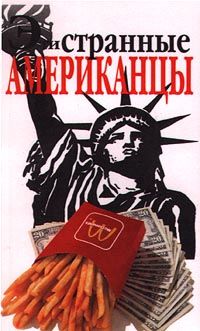Неизвестен Автор - Словарь американских идиом (8000 единиц)
[spring a leak] <v. phr.> 1. To develop a hole (said of boats) through which water can enter, threatening the boat to sink. * /When our small boat sprang a leak, we rapidly returned to shore to fix it./ 2. To be threatened by some oncoming danger. * /Our firm sprang a leak when the vice president suddenly died of a heart attack./
[spring chicken] <n.>, <slang> A young person. - Usually used with "no". * /Mr. Brown is no spring chicken, but he can still play tennis well./ * /The coach is no spring chicken, but he can show the players what to do./
[spring on one] <v. phr.> To approach someone unexpectedly with an unpleasant idea or project. * /Our firm was merely six weeks old when they sprang the news on me that I had to go to Algiers to open a new branch there./
[spring up] <v. phr.> To arise suddenly. * /Small purple flowers were springing up all over our backyard./
[sprout wings] <v. phr.> 1. To enter the stage after a period of development when wings appear (said of larvae that turn into butterflies). * /The dragonflies suddenly sprouted wings and are flying all about in the park./ 2. To become good and virtuous (as if airborne). * /Joe has helped many colleagues in need; he seems to have sprouted wings./
[spruce up] <v.>, <informal> To make clean or neat. * /Mary spruced up the house before her company came./ * /John spruced himself up before he went out on his date./
[spur] See: ON THE SPUR OF THE MOMENT, WIN ONE'S SPURS.
[squad] See: FIRING SQUAD.
[square] See: FAIR AND SQUARE, SHOOT STRAIGHT or SHOOT SQUARE.
[square away] <v. phr.> 1. To arrange the sails of a ship so that the wind blows from behind. * /The captain ordered the crew to square away and sail before the wind./ 2. <informal> To put right for use or action. - Often used in the passive or participle. * /The living room was squared away for the guests./ * /Harry got into trouble, but his scoutmaster talked with him and got him squared away./ Syn.: STRAIGHTEN OUT. 3. <informal> To stand ready to fight; put up your fists. * /Jack and Lee squared away./ Syn.: SQUARE OFF.
[squared away] <adj. phr.> Looked after properly; tucked away; arranged. * /My first two daughters are happily married, but my third one, Jennifer, isn't squared away yet./
[square deal] <n. phr.> 1. Equitable or fair treatment. * /We are proud to say that at this firm every employee gets a square deal./ Contrast NEW DEAL, RAW DEAL.
[square meal] <n. phr.> A full, nourishing well-balanced meal. * /The refugees looked as if they hadn't had a square meal in months./
[square off] <v. phr.>, <informal> To stand ready for fighting with the fists. * /The two boxers squared off when the bell rang./
[square oneself with] <v. phr.> To apologize; re-establish friendship with; make amends. * /"Mr. Alien is very angry with you for leaving the firm," Bob said. "It will take more than a few words and a drink to square yourself with him."/
[square one's shoulders] <v. phr.> To stand strong and ready to give battle; be brave. * /Jack squared his shoulders and entered the game./ * /Graduates must square their shoulders and face the world./
[square peg in a round hole] <n.>, <informal> A person who does not fit into a job or position; someone who does not belong where he is. * /Arthur is a square peg in a round hole when he is playing ball./ * /George likes to work with his hands. When it comes to books, he's a square peg in a round hole./ - Sometimes used in a short form, [square peg].
[square shooter] See: SHOOT STRAIGHT.
[square up] <v. phr.> To liquidate debts and other obligations. * /I want to square up my medical bills before I accept my new teaching assignment in Africa./
[squeak] See: PIP-SQUEAK.
[squeak by] <v. phr.> 1. To barely succeed. * /He was so poorly prepared for his bar exam that he barely squeaked by./ 2. To clear with difficulty. * /The entrance to the corridor in the old Italian castle was so narrow that I barely managed to squeak by it./
[squeak through] <v.>, <informal> To be successful but almost fail; win by a small score. * /Susan squeaked through the history examination./ * /The football team squeaked through 7-6./ Compare: BY THE SKIN OF ONE'S TEETH.
[squeeze out of] <v. phr.> To apply pressure to someone in order to obtain what one desires. * /The police were interrogating the suspect to squeeze information out of him./
[stab in the back(1)] <v. phr.>, <slang> To say or do something unfair that harms (a friend or someone who trusts you). * /Owen stabbed his friend Max in the back by telling lies about him./
[stab in the back(2)] <n. phr.>, <slang> An act or a lie that hurts a friend or trusting person; a promise not kept, especially to a friend. * /John stabbed his own friend in the back by stealing from his store./ * /My friend stabbed me in the back by telling the teacher I was playing hooky when I was home sick./
[stab in the dark] <n. phr.> A random attempt or guess at something without previous experience or knowledge of the subject. * /"You're asking me who could have hidden grandpa's will," Fred said. "I really have no idea, but let me make a stab in the dark - I think my sister Hermione has it."/
[stack] See: BLOW A FUSE or BLOW ONE'S STACK.
[stack the cards] <v. phr.> 1. To arrange cards secretly and dishonestly for the purpose of cheating. * /The gambler had stacked the cards against Bill./ 2. To arrange things unfairly for or against a person; have things so that a person has an unfair advantage or disadvantage; make sure in an unfair way that things will happen. Usually used in the passive with "in one's favor" or "against one." * /A tall basketball player has the cards stacked in his favor./ * /The cards are stacked against a poor boy who wants to go to college./
[stage] See: AT --- STAGE OF THE GAME, HOLD THE STAGE, ON THE STAGE, SET THE STAGE.
[stage fright] <n. phr.> The fear one feels before appearing in front of an audience. * /Many famous actors and actresses admit that they often have stage fright before the curtain goes up./
[stagestruck] <adj.> Desirous of becoming an actor or actress; enamored of the acting profession. * /Milly is so stagestruck that she waits for actresses at the stage door after each performance to get their signatures./
[stage whisper] <n. phr.> A loud whisper intended to reach other ears than those of the person(s) addressed. * /Some jokes should be told in a stage whisper./
[stag party] See: GO STAG. Contrast: HEN PARTY.
[stake] See: AT STAKE, PULL UP STAKES.
[stake a claim] <v. phr.> 1. To claim ownership of land by driving stakes to show boundaries. * /The gold hunters staked claims in the West./ 2. <informal> To claim a person or thing as your own by some sign. Usually used with "on". * /George staked a claim on Dianne by giving her his class ring./
[stamp] See: SAVINGS STAMP, TRADING STAMP.
[stamping ground] <n.>, <informal> A place where a person spends much of his time. * /Pete's soda fountain is an afterschool stamping ground./ * /When John returned to his hometown many years later, he visited all of his old stamping grounds./
[stamp out] <v.> To destroy completely and make disappear. * /In the last few years, we have nearly stamped out polio by using vaccine./ * /The police and judges are trying to stamp out crime./ Compare: WIPE OUT.
[stand] See: GOAL LINE STAND, HAIR STAND ON END, HEART STAND STILL, LEG TO STAND ON.
[stand a chance] or [stand a show] <n. phr.> To have a possibility or opportunity; be likely to do or get something. * /Fred doesn't stand a chance of being elected./ * /We stand a good chance of seeing Mary at the party./
[standard time] also [slow time] <n.> Clock time that is set by law or agreement in a country or in part of a country; especially, in the United States: the clock time used between fall and spring, which is an hour slower than the time used in the summer. - Abbreviation ST. * /When we go to bed Saturday night, we will set our clocks back an hour, because Sunday we will be on standard time again./ * /Next week it will get dark an hour earlier, because we will be on standard time./ Contrast: DAYLIGHT SAVING TIME.
[stand by] <v.> 1. To be close beside or near. * /Mary could not tell Jane the secret with her little brother standing by./ * /Would you just stand by and watch the big boys beat your little brother?/ 2. To be near, waiting to do something when needed. * /The policeman in the patrol car radioed the station about the robbery, and then stood by for orders./ * /Lee stood by with a fire extinguisher while the trash was burning./ 3. To follow or keep (one's promise). * /He is a boy who always stands by his promises./ 4. To be loyal to; support; help. * /When three big boys attacked Bill, Ed stood by him./ * /Some people blamed Harry when he got into trouble, but Joe stood by him./ Compare: BACK UP, HANG TOGETHER, STAND UP FOR.
[stand by one's guns] See: STICK TO ONE'S GUNS.
[stand for] <v.> 1. To be a sign of; make you think of; mean. * /The letters "U.S.A." stand for "United States of America."/ * /The written sign "=" in an arithmetic problem stands for "equals."/ * /Our flag stands for our country./ * /The owl stands for wisdom./ 2. To speak in favor of something, or show that you support it. * /The new President stood for honest government./ * /John always stands for what is right./ 3. <Chiefly British> To try to be elected for. * /Three men from London are standing for parliament./ * /The governor did not stand for reelection./ 4. <informal> To allow to happen or to be done; permit. - Usually used in the negative, * /The teacher will not stand for fooling in the classroom./ Compare: HAVE IT(4), PUT UP WITH.
[stand in awe of] <v. phr.> To look upon with wonder; feel very respectful to. * /Janet always stands in awe of the superintendent./ * /The soldier stood in awe to his officers./
[stand in for] <v. phr.> To substitute for someone. * /The famous brain surgeon was called out of town so his assistant had to stand in for him during the operation./
[stand in one's way] See: IN ONE'S WAY.
[stand in with] <v. phr.>, <informal> To be liked by or friendly with. - Usually used with "well". * /John stands in well with the teacher./
[stand off] <v.> 1. To stay at a distance; stay apart. * /At parties, Mr. Jones goes around talking to everyone, but Mrs. Jones is shy and stands off./ 2. To keep (someone or something) from coming near or winning. * /The soldiers defending the fort stood off a large band of Indians./ * /The other schools wanted to beat our team and win the championship, but our boys stood them all off./ Contrast: GIVE GROUND.
[standoffish] <adj.> Stiff; aloof; reserved in manner. * /The famous chess player is hard to get to know because he is so standoffish./
[stand on ceremony] <v. phr.> To follow strict rules of politeness; be very formal with other people. - Usually used with a helping verb in the negative. * /Grandmother does not stand on ceremony when her grandchildren call./
[stand one in good stead] <v. phr.> To be helpful or useful to. * /A boy scout knife will stand you in good stead when you do not have other tools./ * /Julia knew how to typewrite, and that stood her in good stead when she looked for a job./
[stand one's ground] also [hold one's ground] <v. phr.> 1. To stay and fight instead of running away. * /The enemy attacked in great numbers but our men stood their ground./ Compare: GAIN GROUND. Contrast: GIVE GROUND, LOSE GROUND. 2. To defend a belief or statement; refuse to weaken when opposed; insist you are right. * /John's friends said he was mistaken but he stood his ground./ Compare: STICK TO ONE'S GUNS.
[stand on one's own feet] or [stand on one's own two feet] <v. phr.> To depend on yourself; do things yourself; earn your own living; be independent. * /After his father died, John had to stand on his own feet and earn his own living./ * /You should learn to stand on your own two feet./
[stand out] <v.> 1. To go farther out than a nearby surface; protect. * /A mole stood out on her cheek./ Compare: STICK OUT(1b). 2. To be more noticeable in some way than those around you; be higher, bigger, or better. * /Fred was very tall and stood out in the crowd./ * /John stood out as a track star./
[stand over] <v.> 1. To watch closely; keep checking all the time. * /Ted's mother had to stand over him to get him to do his homework./ 2. To be held over for later action; be postponed; wait. * /The committee decided to let the proposal stand over until its next meeting./
[stand pat] <v.>, <informal> To be satisfied with things and be against a change. * /Bill had made up his mind on the question and when his friends tried to change his mind, he stood pat./ Compare: STAND ONE'S GROUND(2).
[stand the gaff] <v. phr.>, <informal> To stand rough treatment; do well in spite of great physical or mental hardship. * /An athlete must learn to stand the gaff./ * /No person running for office gets far unless he can stand the gaff./ Compare: HOLD OUT 2, STICK OUT 2.
[stand to reason] <v. phr.> To seem very likely from the known facts. * /If you have a driver's license, it stands to reason you can drive./ * /Joe is intelligent and studies hard; it stands to reason that he will pass the examination./
[stand trial] <v. phr.> To submit to a trial by court. * /The case has been postponed and he may not have to stand trial until next April./
[stand up] <v.> 1. To rise to a standing position; get up on your feet. * /A gentleman stands up when a lady enters a room./ 2. To be strong enough to use hard or for a long time. * /A rocket must be built strongly to stand up under the blast-off./ * /The old car has already stood up for twenty years./ Compare: WEAR WELL. 3. <informal> To make a date and then fail to keep it. * /June cried when Bill stood her up on their first dale./
[stand up and be counted] <v. phr.> To be willing to say what you think in public; let people know that you are for or against something. * /The equal rights movement needs people who are willing to stand up and be counted./ * /If you disagree with the group, you should be ready to stand up and be counted./
[stand up for] or <informal> [stick up for] <v.> To defend against attack; fight for. * /John always stands up for his rights./ * /When Mary was being criticized, Jane stuck up for her./ Compare: BACK UP, GO TO BAT FOR, STAND BY, STAND ONE'S GROUND, STICK TO ONE'S GUNS, GO TO BAT FOR.
[stand up to] <v.> To meet with courage. * /Mary stood up to the snarling dog that leaped toward her./ * /A soldier must stand up to danger./
[stand up with] <v.>, <informal> To be best man or maid of honor at a wedding. * /A groom often chooses his brother to stand up with him./
[star] See: FIVE-STAR, SEE STARS, HITCH ONE'S WAGON TO A STAR, LUCKY STAR, THANK ONE'S LUCKY STARS.
[starch] See: TAKE THE STARCH OUT OF.
[stare in the face] <n. phr.> 1. To be about to meet or to happen to (you.) * /Grandmother became very sick and death was staring her in the face./ * /Defeat stared them in the face, but the soldiers fought on bravely./ 2. To be easy to see; be plain. * /Are you looking for your pencil? It's on your desk, staring you in the face./ * /Their friends all knew that Mary loved John, but John did not see it even though it was staring him in the face./




